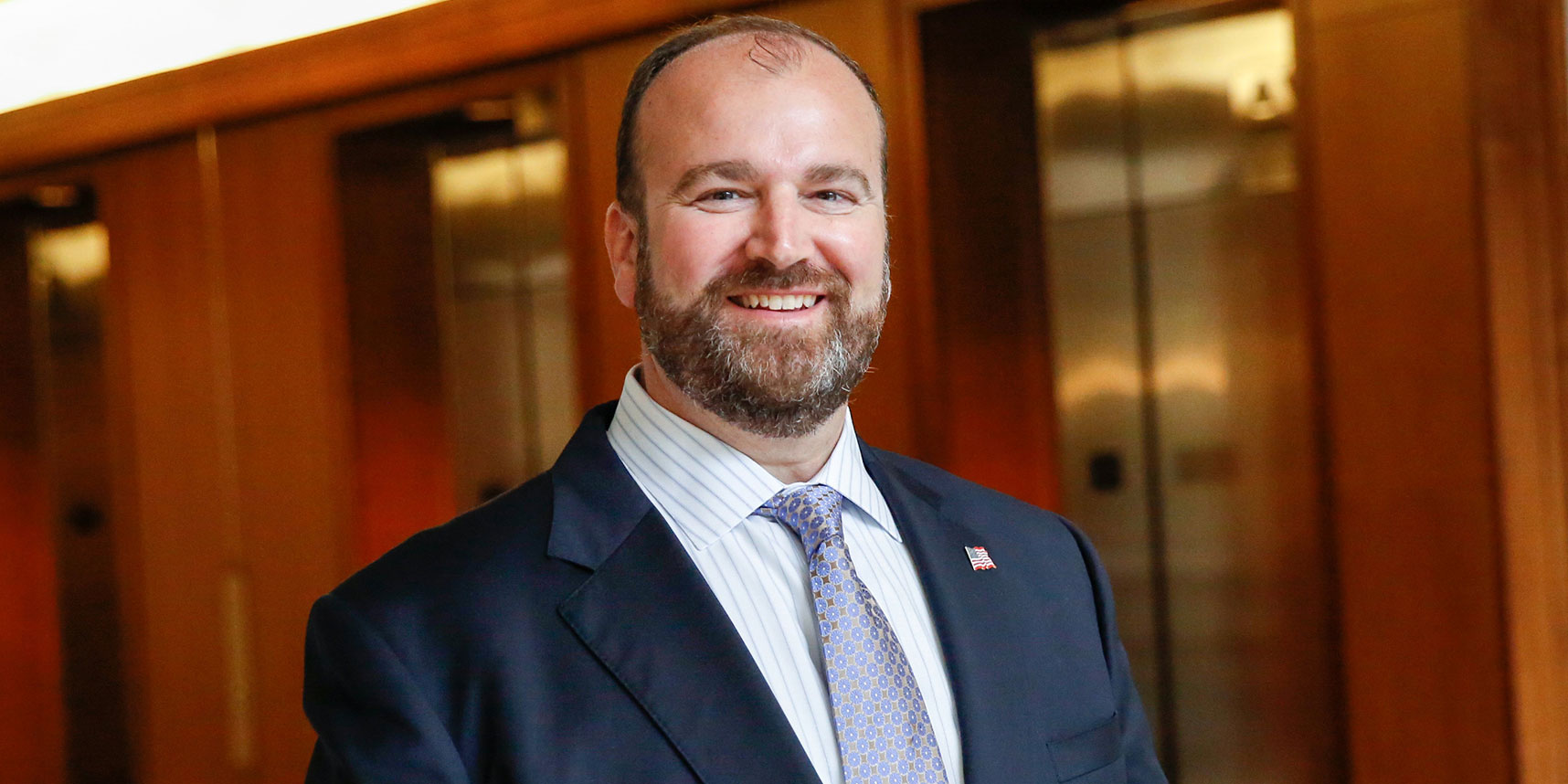 (This post was originally published in 2018)
(This post was originally published in 2018)
This year at Heritage we will celebrate our 23rd anniversary. We’ve grown our team, adopted new technology, expanded our offerings, and evolved in many ways. But, I’m most proud of how we stayed true to the core values we identified at our inception. The way we defined how we would do business in 1995 is the way we do business today: act exclusively in the clients’ best interest, 100% of the time. Every day. Every relationship. It’s the true foundation of being a fiduciary, but more importantly, it is at the core of who we are, which is something that will never change.
When I started my career in 1990 with John Hancock Financial Services, the wealth management industry looked a lot different than it does today. Financial plans were created on whiteboards and loose sheets of paper using HP12C calculators – most advisors didn’t leave their house without one in tow. Clients’ contact information was stored in Rolodexes, and trading instructions were penned on pieces of paper and handed to the trade desk manually. It took weeks to rebalance all of our clients’ portfolios – which meant that different clients could get different pricing for the same trade.
But the most glaring difference I remember is the conflict of interest many advisors had when representing their clients. Most firms were offering financial products that had a commission built into the underlying cost. This commission was split between the advisors and the financial firm where they were employed. Another inherent conflict was that advisors were selling proprietary products of the banks and financial institutions they represented, which often weren’t the very best solutions available. Advisors would typically make more money by selling these products, but for clients, it meant acquiring investments that weren’t necessarily the best choice.
Even as a young advisor trying to find my footing, I was bothered by this conflict. I remember discussing it with my grandfather, who was my mentor and a hall of fame retired manager at MetLife. He always had a very clear message that confirmed my thinking. “Always do what’s in the best interest of the client and don’t be concerned about the fee or commission income earned,” he said. He and I strongly believed that building long-term relationships with clients was much more important than any short-term monetary gain. When the clients win, you win. This is the principle I have followed over the last twenty-eight years. It has served our clients and my firm extremely well.
In fact, this need to always do better for my clients encouraged me to search for more independence in managing their portfolios. I pushed for brokerage accounts with access to non-proprietary investments that were better choices for my clients. I wanted the freedom to offer the universe of investments from the most cost-effective, best-performing managers available. This was a rare request at the time and cemented my resolve to establish Heritage Financial Services in 1996 with the vision of running a fully independent, fiduciary firm.
At its inception, Heritage was affiliated with an independent broker-dealer, Commonwealth Financial Network. Commonwealth provided a springboard to a world free of proprietary products with a much wider universe of investments to choose from.
There were many types of mutual funds available in the marketplace back then. Most paid the advisor a commission upfront through either class A shares that carried a front-end load or class B shares that were back-end loaded where clients paid a higher annual fee and had a penalty to withdraw funds in the first six years. Then came class C shares, which had neither a front nor back-end load, but paid the advisor a smaller annual commission. This started to align the interests of the client with the advisor, but class C shares were only available within a relatively small group of mutual fund families. I was an early adopter of C shares because they helped level the playing field and removed most of the conflicts of interest. There was no significant monetary incentive for advisors to advocate for C shares, instead, the advisor earned a commission that was tied to the value of the client’s account.
This was the stepping stone to forming a fee-based practice – Heritage started to transition from a commission-based model to a fee-based model in 1999 and formally registered as a registered investment advisor in 2000. As part of the new model, we started charging a fixed annual tiered fee with breakpoints for larger accounts. We also had access to lower-cost, institutionally-priced funds from a wide array of global investment managers.
In 2009, we took another big step towards my original vision and Heritage became a fully independent registered investment advisor. We now had the whole universe of investments and could choose from among the lowest-cost institutional managers in the marketplace. The only goal was to build a portfolio that was clearly in the best interests of our clients. We had, in the truest sense, become a fiduciary. Now, in 2018, when brokers and advisors are debating the new Department of Labor (DOL) Fiduciary Rule and what changes to make, we know that we have always acted in the best interests of our clients. Any changes that are under consideration will only shift to align others who have not followed this standard. Our firm was founded on the core principles of being a fiduciary, which is the true essence of who we are today.
As Heritage has grown from a one-person firm to a 30-member professional team, it was a priority to ensure that every person on the team espouses the same core values of putting clients’ interests first. We invest a lot of time and thought when hiring new staff members to ensure we hire some of the best and brightest people in the industry. We continue to spend considerable time and effort developing standardized policies and procedures that help provide a consistent level of exemplary service to all our clients. Over the years, we have grown to six client-facing wealth management teams, consisting of a wealth advisor working closely with a senior wealth manager. Our wealth managers have an average of 20 years of experience working as financial advisors and passionately want to help their clients succeed. Additionally, there are three centralized groups within Heritage that provide invaluable support to the client-facing wealth management teams – investment management, financial planning, and operations that all provide high quality and consistent level of service to several hundred clients.
Over the last 22 years, Heritage has received numerous accolades from the likes of Barron’s, Bloomberg, Financial Advisor Magazine, Financial Times, Forbes, and The Wall Street Journal. In 2017, Charles Schwab & Co. Inc. recognized us with the prestigious Best-In-Business IMPACT award. Yet, the one single accomplishment we are most proud of is our 99% client retention rate. I believe this is a testament to the fact that we have been able to accomplish what I set out to do in 1996 – create a firm where clients understand that their financial advisors are always working in their best interest.
Sincerely,
Chuck Bean


